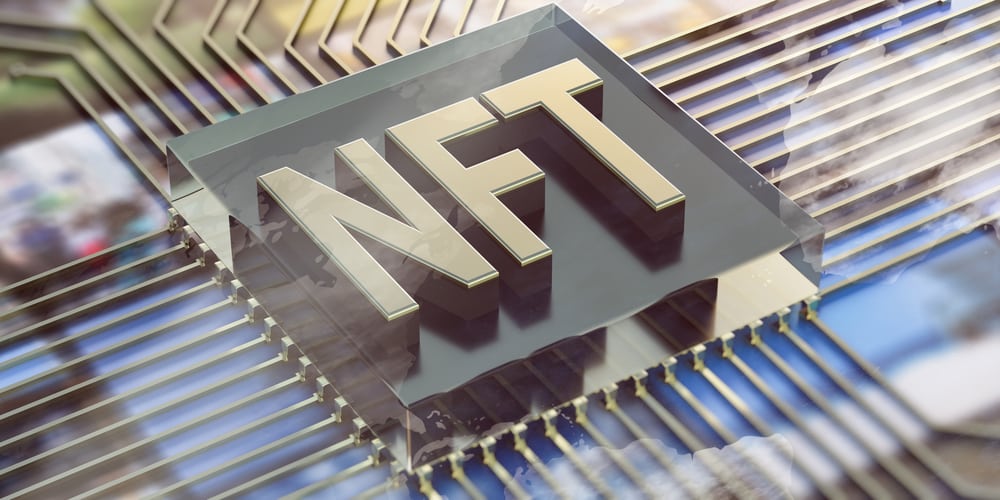NFTs, or non-fungible tokens, saw widespread acceptance in 2021, and they’ve seemingly been the word on everyone’s mouth since then. DappRadar, a popular market tracker website, estimates that sales from NFTs grossed $25 billion in 2021. Even in the current bear market, NFT sales have seen impressive growth. One of the ways NFT creators are using this revenue is by donating it to charity. This has been a lifesaver for some of these charities, as COVID-19 lockdown restrictions put a hold on in-person fundraising events.
NFTs in brief
NFT stands for non-fungible token. Non-fungible means something that’s unique, and cannot be copied, substituted or divided. A token, in crypto circles, represents anything that holds value. Therefore, an NFT is a unique token that is stored immutably on a blockchain, and contains unique and distinguishable features. A blockchain, on the other hand, is a ledger on which all transactions made using a particular cryptocurrency are recorded. This ledger is stored across a system of several computers/nodes that are linked in a peer-to-peer network.
Nowadays, the most common iteration of NFTs is as digital art. This could be anything from a drawing, a video clip, an MP3 file, or any other digital creation. By minting said art on a blockchain, the creator can ensure their work is not duplicated, and that anyone can trace back the token’s ownership to them.
Reasons for donating NFTs
There are different motivations for NFT creators and holders to donate their sales revenue to charities. For one, they could have a genuine belief in the greater good that a certain charity is aiming to achieve, which in any case should be their strongest motivation. However, if that’s not sufficient, how about that these donations are completely tax deductible? In most countries, if one were to resell an appreciated NFT and keep the proceeds, they would be subjected to a capital gains tax. By donating the token instead, they are not only exempt from paying this tax, but they also receive a fair market deduction on the return. Additionally, if the receiving charity is duly registered, it would not have to pay any taxes either.
Charities accepting donations of blockchain products
As highlighted earlier, the COVID-19 pandemic and the resultant lockdowns put a strain on in-person charity events, which sourced the bulk of charities’ donations. This created the need for alternative means of raising income, one of which was embracing blockchain technology and its associated products. Crypto assets are borderless and permission-less. This means that charities could receive donations from anywhere on the globe without any of the red tape that would traditionally accompany such transactions.
There are several charities that are accepting crypto donations. The American Red Cross started accepting Bitcoin back in 2014. The United Nations Children’s Fund, UNICEF, began accepting crypto in 2019. Notably, there is one up and coming startup called The Giving Block, which is working with several smaller charities and non-profit organizations to help them accept digital asset donations.
Celebrities driving NFT use for charity
Celebrities from all over the world have been on the forefront of popularizing the wave of using NFTs for charity. For instance, Jack Dorsey, the former Twitter CEO, recently minted his first tweet into an NFT. He later sold it for $2.9 million, all of which he donated to GiveDirectly, which has recently been linked with efforts to fight coronavirus in Africa.
Beeple, an American artist who holds the record for the most expensive NFT ever sold, recently sold another of his creations for charity. The NFT fetched a whopping $6 million, which he donated to the Open Earth Foundation. This is a charity that’s actively fighting climate change.
Other notable celebrities involved in NFT charity drives include talk show host Ellen Degeneres and world-renowned soccer star Pele. The former auctioned off an NFT of her selfie, which sold for $33,495. This she donated to World Central Kitchen, a charity that feeds victims of natural disasters. Pele, on the other hand, auctioned off NFT player cards, and donated 90% of the sales revenue to his charity.
In August 2021, Cryptograph, a renowned NFT platform, partnered with photographer Davis Factor to auction off 8 unique photographs of the late NBA star Kobe Bryant as NFTs. All the proceeds from the sale went to the Mamba and Mambacita Sports Foundation. Any future sales of these tokens will also generate income for this sports foundation.
Initiatives betting big on NFT philanthropy
Sheqonomi is one such project that is actively using NFTs to assist children in need, especially girls from underserved communities. Essentially, it is a podcast-like listening app that allows users to listen and learn, in return for crypto rewards. On March 8th 2022, the project held an NFT auction, where the proceeds went to different women-centered charities. One of the NFTs that was featured was a piece by an 8-year old girl named Isla Mostaque. She earmarked 50% of the proceeds to go to refugees.
UNICEF is another organization that went all out on NFT philanthropy. To commemorate their 75th anniversary, the organization launched a 1,000 NFT collection to help bring computers and internet to schools in underserved communities. This collection was named Patchwork Kingdoms, and was created in partnership with artist Nadieh Bremer.
Conclusion
Since the onset of the COVID-19 pandemic, in-person auctions and fundraisers were rendered impossible, and most charities suffered as a result. As a solution, some of these charities turned to blockchain products like NFTs to raise funds. Some notable celebrities have been at the forefront of this movement, such as Twitter’s Jack Dorsey, talk show host Ellen Degeneres and Beeple. Several charities are already accepting crypto donations, and startups like The Giving Block are working with smaller charities to help them accept these digital assets. Several organizations such as UNICEF and Sheqonomi are also releasing NFT collections to raise money.
